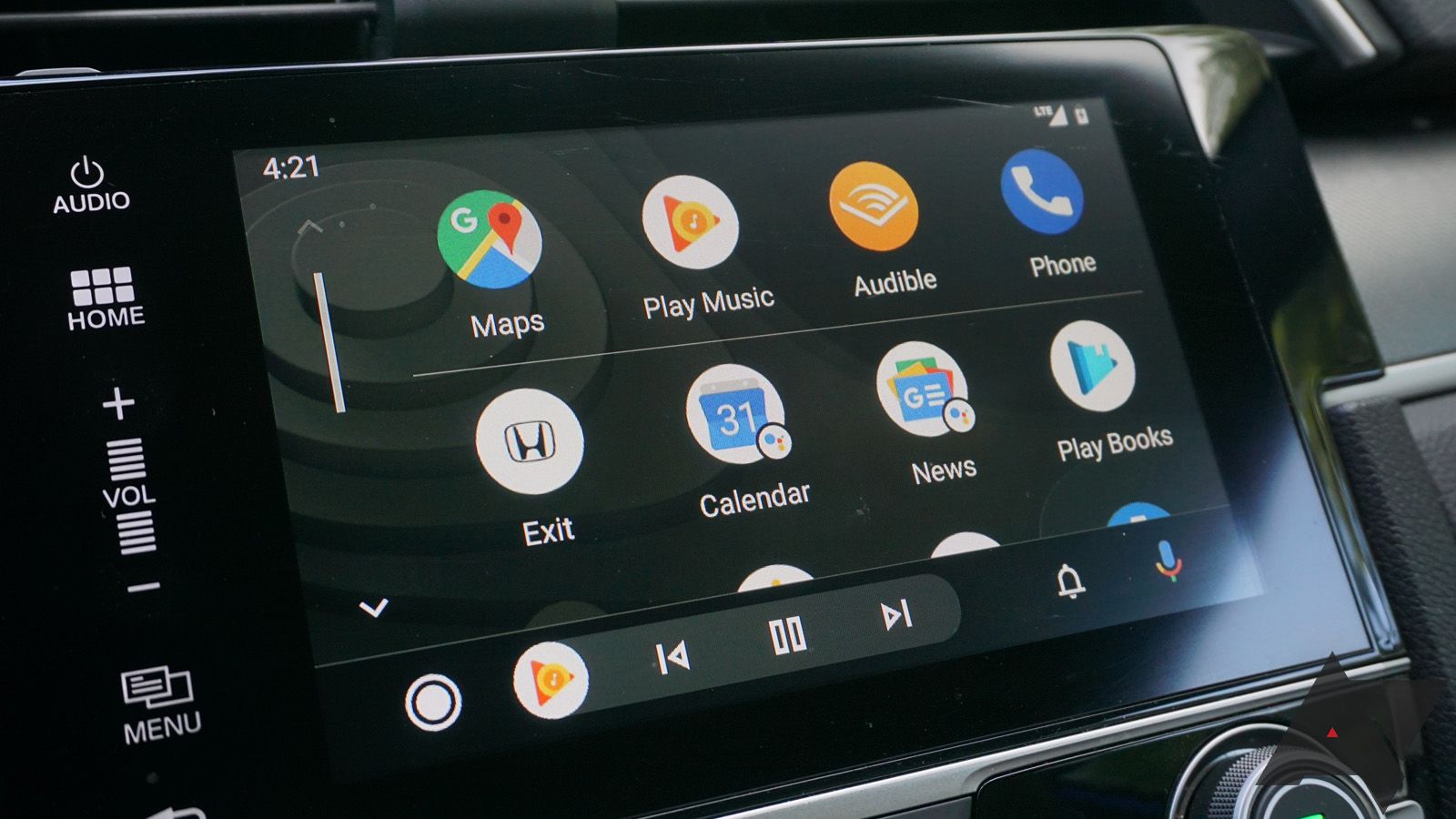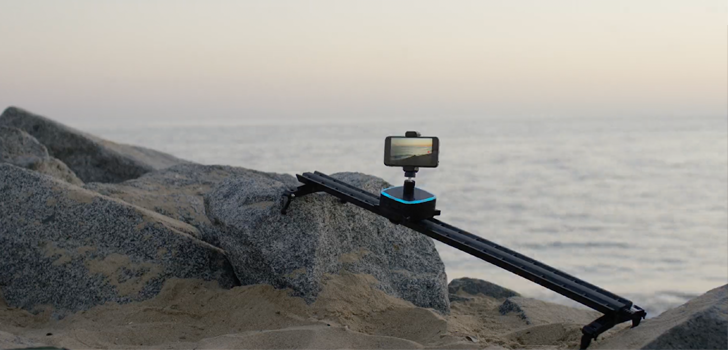latest

UGREEN’s new ergonomic laptop hub stand supports good posture and has all the ports you'll need (Sponsored)
Back the X-Kit through Indiegogo for as low as $44 using our exclusive link
Whether you're working at the kitchen table, your home office, or anywhere else you can find a flat surface, you're likely spending a lot of time hunched over a laptop these days, trying to be as productive as possible. But if you and your computer aren't at an optimal angle, you could walk away every evening with a stiff neck, back pain, and achy wrists. Over time, these can really take a toll on your health and work productivity, but it doesn't have to be that way. Introducing X-Kit, the "world's first '5+4' foldable ergonomic hub-stand" by UGREEN.

AAWireless adapter that brings wireless to any Android Auto unit blows through crowdfunding goal
The Indiegogo campaign for AAWireless just started
Read update
While compatibility with wireless Android Auto is expanding on phones, there are still many in-car head units and media players that are stuck using tethered connections. That's where a device called 'AAWireless' comes in, which aims to add wireless support to as many Android Auto units as possible.

Mobvoi's new Earbuds Gesture offer head-gesture control and 10 hours of playback
They're on Indiegogo right now for a special launch price of $65
Mobvoi just launched its budget Bluetooth buds with ANC a few months ago, but the company is already back with another pair of wireless earbuds. The Earbuds Gesture come with TicMotion capabilities that allow answering or rejecting phone calls with a shake of the head — and they're live on Indiegogo for a special early backer price of $65.

A bit over a week ago, an Android phone with a PDA/laptop form-factor called the Cosmo Communicator hit Indiegogo. I know, I know, crowdfund projects are whatever, but the Cosmo has two interesting things going for it: the company behind it (Planet Computers) already has one similar success under its belt, and the project is already over 350% funded with three weeks left to go.I'm known here at Android Police for my enduring love of tiny computers. I had a Vaio C1 as a kiddo and spent a good chunk of College using an ASUS 1000HE. More recently, I picked up a GPD Pocket (which I regret) and a Surface Go (which I regret less). By all this I mean to say: I'm pretty excited for the Cosmo. On paper, the Cosmo Communicator doesn't seem like a very good value, though. The $550 early-bird price only snags you a Mediatek P70 — the sort of chipset found in $300-400 phones in most markets. The extra 150-250 nets you a change in form-factor, backlit "mechanical full " keyboard, dual USB-C ports, and a secondary 2" 570x240 touchscreen when folded.
On paper, the Cosmo Communicator doesn't seem like a very good value, though. The $550 early-bird price only snags you a Mediatek P70 — the sort of chipset found in $300-400 phones in most markets. The extra 150-250 nets you a change in form-factor, backlit "mechanical full " keyboard, dual USB-C ports, and a secondary 2" 570x240 touchscreen when folded. The primary display is a 5.99" 2160x1080p AMOLED, paired with 6GB of RAM and 128GB of storage space. It has an unspecified 24MP primary camera, call answer-toggling fingerprint sensor/switch, and a headphone jack (a growing rarity in 2018). Powering it all is a 4,220mAh battery.The phone ships with Android 9 Pie, but Planet Computers is also advertising a multi-boot configuration which supports the Debian Linux distribution and Sailfish. It is available in a non-trademark infringing "Space Grey Metal" and limited edition, $2,000 gold color. A full spec table is included just below:
The primary display is a 5.99" 2160x1080p AMOLED, paired with 6GB of RAM and 128GB of storage space. It has an unspecified 24MP primary camera, call answer-toggling fingerprint sensor/switch, and a headphone jack (a growing rarity in 2018). Powering it all is a 4,220mAh battery.The phone ships with Android 9 Pie, but Planet Computers is also advertising a multi-boot configuration which supports the Debian Linux distribution and Sailfish. It is available in a non-trademark infringing "Space Grey Metal" and limited edition, $2,000 gold color. A full spec table is included just below:

Back in 2014, a German startup successfully launched the Panono 360 via Indigogo. It's a little ball sprinkled with lenses that you throw up in the air to create perfect 360 degrees panoramas with a whopping resolution of 108MP. While other crowdfunding campaigns fall short of delivering a product altogether, Panono appears to become a failure in another department, five years after its product launch. Starting this September, the company will charge €0.79 ($0.88) for each photo stitched together on its cloud platform, and customers are enraged.

You may remember that back in February at MWC 2019 in Barcelona, Energizer unveiled a boatload of phones. The most bizarre of the lot had a humungous 18,000mAh battery, dual pop-up front cameras, and it could seemingly also be used to break through glass in an emergency. In news that will shock nobody, it has spectacularly failed to reach its lofty Indiegogo crowdfunding target.

When Meizu announced its concept Zero smartphone last week, the idea seemed outlandish, even if a logical continuation of the minimalism trend we've been seeing the last couple of years. At the time, Meizu swore the device existed and although we doubted that, it does look like the Zero will soon make its way into production as Meizu has opened up an Indiegogo campaign for it.

Well, to be honest, they aren't quite back yet, but they will be soon, and you can back the idea through the newly revealed Indiegogo campaign that just went live this morning. Apparently, it's been 25 years since POGs had a brief success in the early '90s, and now we all may get the opportunity to experience the forgettable collectible milk-cap slamming game all over again, but this time as an augmented reality mobile title. That's right, POGs AR will be the first officially licensed mobile game from the World POG Federation.

Now that multiple Android OEMs have launched phones without headphone jacks, consumers have had to reluctantly concede that true wireless earbuds need to be a thing. And they are, with some compelling options out there from the likes of Jaybird, Bose, and Zolo (by Anker). They're still by no means cheap, however, so it's exactly the right time for the TicPods Free from Mobvoi to enter the fray.

Lenovo-owned Motorola might have been onto something with its modular phone accessories for the Moto Z series, but a combination of slow development of compelling products and poor availability leaves them in a precarious position. Nevertheless, the company is pushing on with the project in 2018 and has some new Moto Mods coming soon, plus a new design competition.

Have you ever wondered how people make those timelapse videos where the view from the camera smoothly drifts from one point to another? These are done with a piece of gear called a motorized slider. They're generally large, unwieldy, and limited by unfriendly user controls. Enter Trek, a modular, motorized slider designed for smartphones, GoPros, and other lightweight cameras. It's app-controlled for easier use and more advanced routines than many other sliders.

We've seen levitating Bluetooth speakers and connected smart cameras before, but the Moon, a fully funded Indiegogo project, melds those technologies in a $209 ($330 at retail) floating robotic eyeball and base that can also act as a smart hub for your home. That is, if it ever ships. The typical crowdfunding caveats apply. Some Indiegogo projects don't have much of a future, and this is 1-Ring's first.

Sleep as Android is a hugely popular app in the Play Store with more than 10 million downloads. The app uses sensors in your phone or certain wearables to analyze your sleep, but the team behind Sleep as Android is now looking to make a dedicated piece of tracking hardware, and it's a bit unusual. The Sleep Phaser on Indigogo is a bedside sensor that tracks your sleep without any direct contact.

Anker's projector brand, Nebula, released the Nebula Mars earlier this year. If you read our review, you'll know it was a pretty solid portable projector, but the software experience left a bit to be desired. Today, Anker launched the Nebula Capsule on Indiegogo, a smaller projector with (what seems to be) much improved software.

Read update
- The Frank team sent out this email to some backers and followers earlier today:
Earlier this month, two entrepreneurs from Ottawa, Canada launched a crowdfunding campaign for the "frank." phone. The main premise was that smartphones are too expensive, and there needs to be a phone priced competitively that does everything you need it to. The project had a very edgy tone, using phrases like, "It’s just another fucking phone but it’ll only cost you $180," and, "It’s about time to disrupt the shit out of the North American smartphone industry."

Read update
The Android enthusiast community has always been hungry for phones that offer a flagship experience at a low cost. That's why people still mourn Google's Nexus program a year later, despite numerous hardware problems over the years (I should know, my 5 and 5X both died unexpectedly after about a year). And despite OnePlus' many misfires over the years, the company's phones are still praised.

Yesterday Sony Global Education launched an Indiegogo crowdfunding project for its newest educational initiative. Meet KOOV a programming and robotics kit for children. Think Legos meets robots (which is already a thing) but with better software and simpler hardware. With these tools, your kids can pick up programming fundamentals at a much earlier age. Perhaps little Suzy might be the next Wozniak or Stallman. Probably with less facial hair, though.

I don't want to say Moto Mods are a universally bad idea, but most of the Mods that have been released so far are mediocre at best, and the prices are crazy. It's been a while since Motorola released a new Mod, but there could be more ideas floating around soon. The company has partnered with crowdfunding site Indiegogo to get developers interested in making Moto Mods.

Have you ever been part of a crowdfunding campaign gone wrong? No doubt some of you have, and some of you may well have contributed to such campaigns through PayPal for a reason that, until now, made it quite handy in the event of such a misfortune: purchase (formerly buyer) protection. PayPal's purchase protection basically is a "guarantee" that if you buy something through PayPal and never receive it, PayPal will reimburse you the cost of your purchase. So, instead of making you play a never-ending dispute resolution game of cat and mouse with an unresponsive - or in this case, likely non-liquid-asset-possessing - seller, you just get the money back, and PayPal can choose to go after the merchant.

At this point asking people to support your crowd-funded concept device is kind of like asking them to support your "sure-fire multi-level marketing system." Sure, it could be legitimate, but it's better to just treat that money as if it's gone forever. That said, smartwatches might be the one exception. Pebble, arguably the legitimate dark horse in that small market and one of the first to successfully market itself, got started on Kickstarter. So maybe it wouldn't be fair to dismiss the CoWatch, a new smartwatch that features interoperability with Amazon's Alexa voice control system, out of hand.












